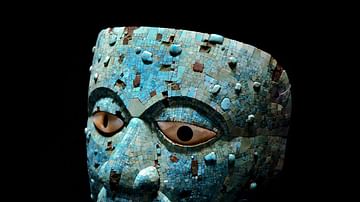Search
Did you mean: Nile?
Search Results

Definition
Philolaus
Philolaus (l. c. 470 to c. 385 BCE) was a Pythagorean philosopher who claimed that fire was the first cause of existence and heat the underlying source of human life. He is best known for his pyrocentric model of the universe, which replaced...

Article
Musketeers in the English Civil Wars
Musketeers played a vital role in the battles and sieges of the English Civil Wars (1642-1651). As the war dragged on, weapons became lighter and more accurate, and the musketeers became more capable of effective battlefield manoeuvres. Volley-fire...

Definition
Kagutsuchi
Kagutsuchi (aka Hi-no-Kagutsuchi) is the Shinto god or kami of fire and is also known as Homusubi. The son of Izanami and Izanagi, the fire god is the father of eight warrior gods and eight mountain gods, amongst others. Such a destructive...

Article
Paiyatuma & the Maidens of the Corn
Paiyatuma and the Maidens of the Corn is a legend of the Zuni nation of the Pueblo peoples of the Southwest of the modern-day USA. Paiyatuma (also given as Paiyatamu) is a kachina spirit – an elemental entity – known to the Zuni as "The God...

Definition
Vigiles - Ancient Rome's Fire Service
The vigiles (or cohortes vigilum) were formed during the reign of Augustus to act as ancient Rome's permanent firefighting service. Evolving from earlier slave teams, the vigiles were organised as an urban military unit and eventually recruits...

Definition
Xiuhtecuhtli - The Aztec God of Fire
Xiuhtecuhtli or 'Turquoise Lord' was the Aztec god of fire and also closely associated with young warriors and rulers. To the Maya he was known as Chac Xiutei. Xiuhtecuhtli was the patron of the day Atl (water) and the trecena period 1 Coatl...

Article
Siege Warfare in Medieval Europe
Siege tactics were a crucial part of medieval warfare, especially from the 11th century CE when castles became more widespread in Europe and sieges outnumbered pitched battles. Castles and fortified cities offered protection to both the local...

Definition
Medieval Castle
Medieval castles were built from the 11th century CE for rulers to demonstrate their wealth and power to the local populace, to provide a place of defence and safe retreat in the case of attack, defend strategically important sites like river...

Article
The Hindenburg Disaster - End of the Transatlantic Airships
The Hindenburg disaster occurred on 6 May 1937 when the German Zeppelin airship LZ 129 Hindenburg attempted to land at Lakehurst, New Jersey, but burst into flames. The airship's gas cells were filled with highly flammable hydrogen gas, and...

Article
Volunteer Services in the London Blitz
An army of 250,000 volunteers, both men and women, working in many different services, ensured life went on during the London Blitz, a period of sustained bombing by the German Air Force on the British capital between September 1940 and May...